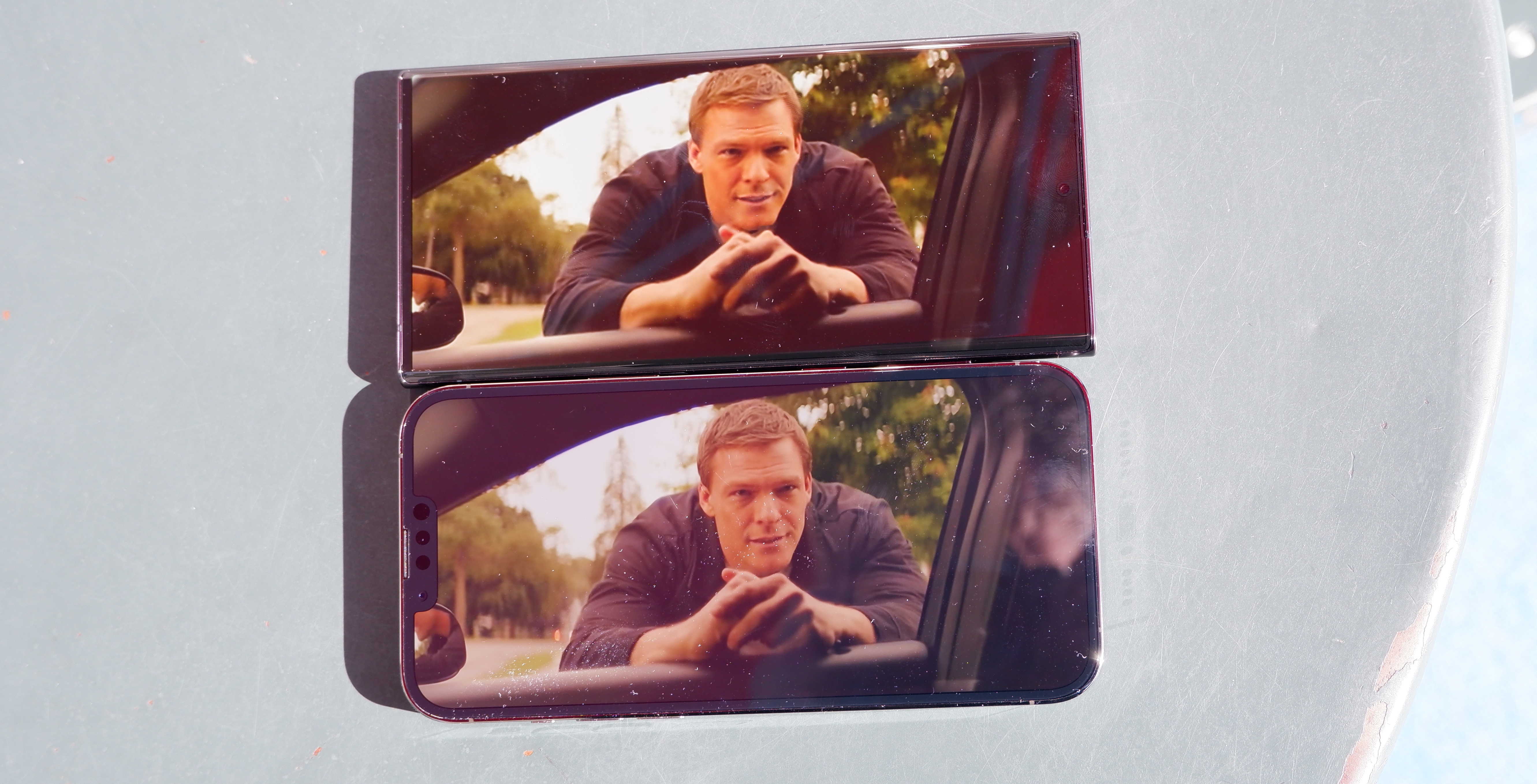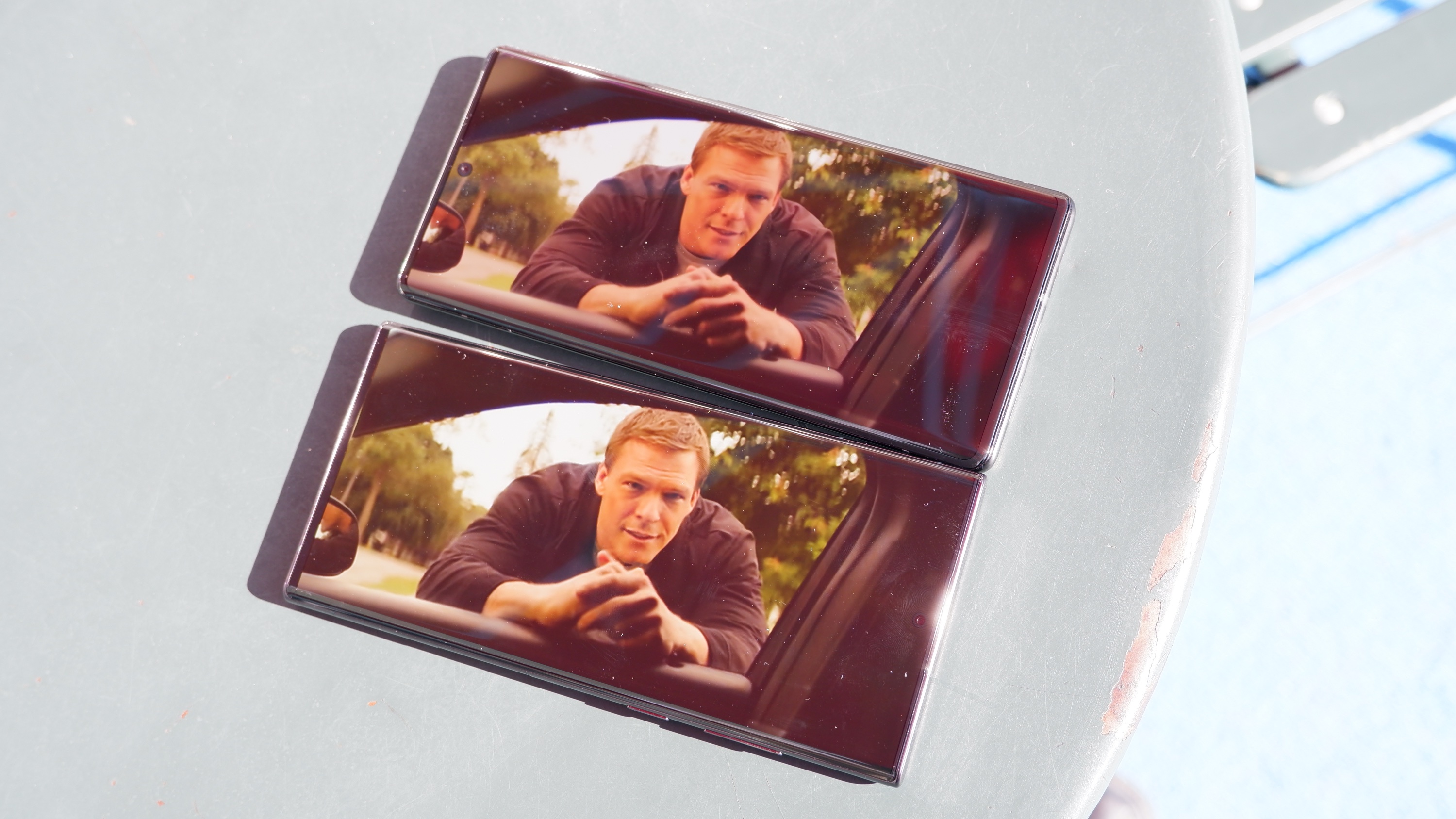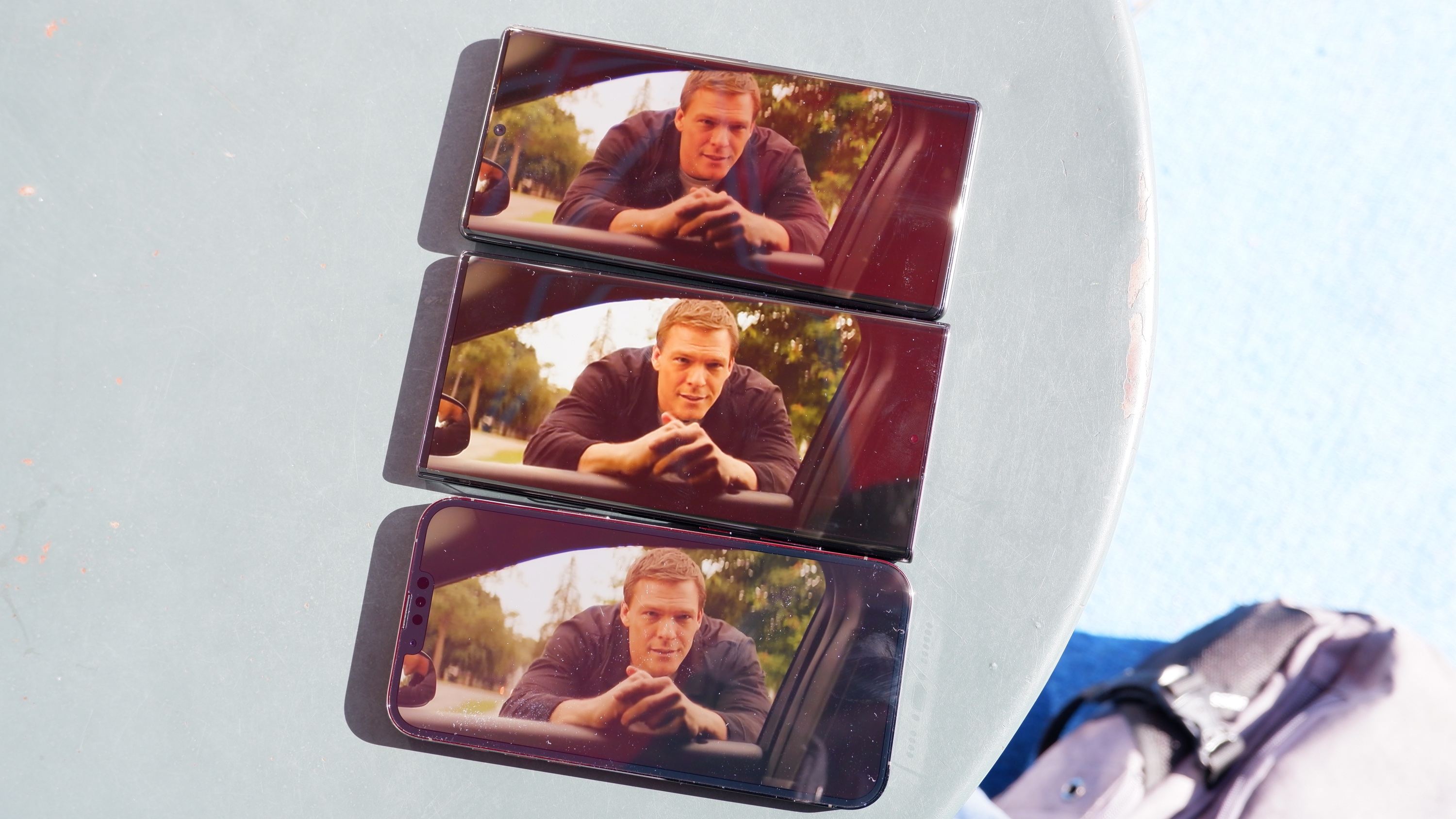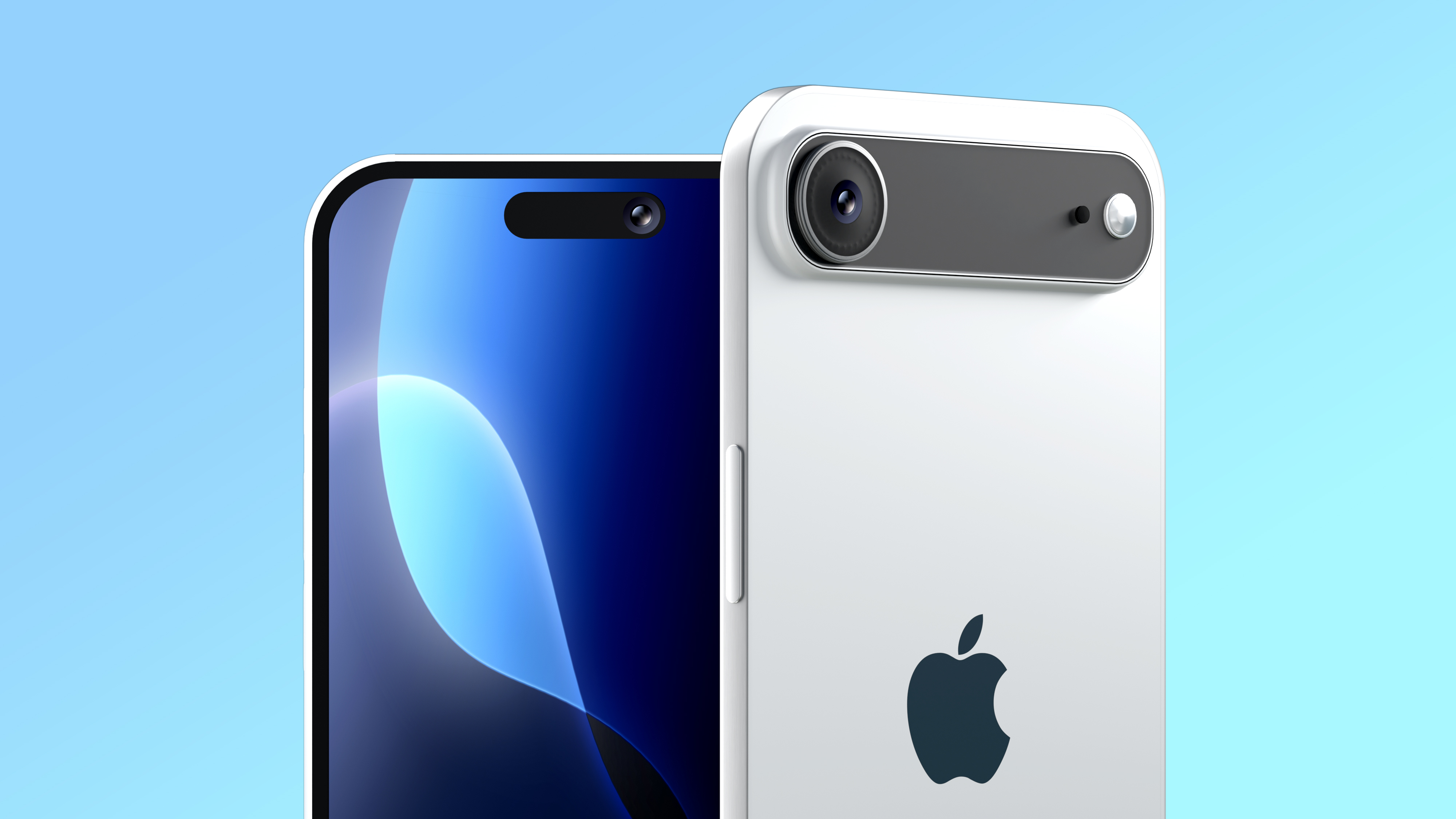Samsung Galaxy S22 Ultra beats iPhone 13 Pro Max in one big way
The Galaxy S22 Ultra's display is simply better based on our testing

The Samsung Galaxy S22 Ultra packs one of the best-looking displays I've ever seen on a phone. This 6.8-inch Super AMOLED screen delivers a 120Hz refresh rate for super smooth scrolling that scales all the way down to 1Hz for power savings. And there's a new Vision Booster feature that automatically adjusts the display based on the surrounding lighting.
But I was most keen to find out how bright this panel gets, as Samsung claims a peak brightness of 1,750 nits and typical brightness of 1,200 nits. So I took this phone outside with the iPhone 13 Pro Max and Google Pixel 6 Pro to see how the three phones stack up in real-world conditions.
I loaded up the Reacher trailer on YouTube on all three phones and took them outside to a table in direct sunlight in New York's Bryant Park. I stood above the phones and took photos using a Fujifilm X-T200 mirrorless camera, making sure each phone was set to its maximum brightness.

The Google Pixel 6 Pro, which sports a 6.7-inch display, produced a fairly bright image, but the panel didn't shine as bright as the Galaxy S22 Ultra. I could also make out more detail in Reacher's shirt and hair, while the Pixel 6 Pro's image was a bit muddy by comparison.
I then turned to the iPhone 13 Pro Max, and you can see in this direct comparison that the Galaxy S22 Ultra delivers a brighter and more vibrant image. In this case I did have the screen set to Vivid instead of Natural mode, which accounts for the more saturated colors. But even without that difference, it almost looks like there's a film on the iPhone's display whereas the Galaxy S22 Ultra just gives you an image that feels more present. It also helps that the S22 Ultra doesn't have a notch and offers narrower bezels than the iPhone 13 Pro Max.
Last but not least, I put all three phones side by side to see whether the Galaxy S22 Ultra's display truly stands out. Heck yes it does.

While the Google Pixel 6 Pro (top) and iPhone 13 Pro Max (bottom) hold their own against the Galaxy S22 Ultra, Samsung's phone just looks like it's on another level. Like surreal territory good.
Sign up to get the BEST of Tom's Guide direct to your inbox.
Get instant access to breaking news, the hottest reviews, great deals and helpful tips.
Samsung Galaxy S22 Ultra display test results
| Row 0 - Cell 0 | Samsung Galaxy S22 Ultra | iPhone 13 Pro Max | Google Pixel 6 Pro |
| Max brightness | 1,359 nits | 1,038 nits | 842 nits |
| sRGB color gamut | 137.5% | 109.3% | 104.2% |
| DCIP-3 color gamut | 97.4% | 77.4% | 73.8 |
| Delta-E color accuracy (lower is better) | 0.25 | 0.21 | 0.3 |
We also tested the Galaxy S22 Ultra's display in our lab to see how good its display is. First up, we used a colorimeter to measure the peak brightness with adaptive brightness turned on. The S22 Ultra registered a whopping 1,359 nits with HDR content. The iPhone 13 Pro Max reached 1,038 nits and the Google Pixel 6 Pro 842 nits.
To test color reproduction we measure both the sRGB color gamut and more demanding DCIP-3 color spectrum. The Galaxy S22 Ultra covers 137.5% of the sRGB and 97.4% of the DCI-P3 color space in Natural display setting mode. That beats both the 109.3%/77.4% for the iPhone 13 Pro Max and 104.2% and 73.8% for the Pixel 6 Pro.
So what about color accuracy? In Natural mode the Galaxy S22 Ultra scored a 0.25 Delta-E rating, where lower numbers are better and a Delta-E score of 0 is perfect. The iPhone 13 Pro Max notched a better 0.21 and the Pixel 6 Pro a worse 0.3.
Galaxy S22 display: Bottom line
What's more important than your smartphone's display? I'd say it's right up there with the cameras and battery life, especially when it comes to outdoor readability. And the Samsung Galaxy S22 Ultra literally outshines the competition both in the real world and in our labs.
The Galaxy S22 Ultra's panel delivered more max nits of brightness but also offered better color reproduction in both the sRGB and DCI-P3 color space.
Check out our Galaxy S22 Ultra review in progress for more on this ambitious flagship phone.
Mark Spoonauer is the global editor in chief of Tom's Guide and has covered technology for over 20 years. In addition to overseeing the direction of Tom's Guide, Mark specializes in covering all things mobile, having reviewed dozens of smartphones and other gadgets. He has spoken at key industry events and appears regularly on TV to discuss the latest trends, including Cheddar, Fox Business and other outlets. Mark was previously editor in chief of Laptop Mag, and his work has appeared in Wired, Popular Science and Inc. Follow him on Twitter at @mspoonauer.
-
miitchhhhhhhhhhh Is the color gumut of the 13 Pro Max and Pixel 6 Pro reduced as it is measured in peak brightness?Reply

